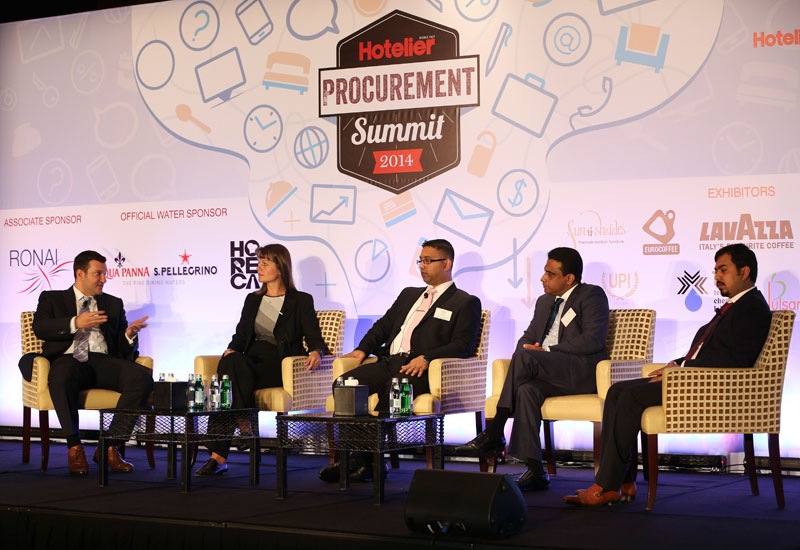 Wissam El Cheikh Hassan chaired the first panel session of the day on how to make purchasing more efficient.
Wissam El Cheikh Hassan chaired the first panel session of the day on how to make purchasing more efficient.
The Ritz-Carlton DIFC was the gathering place for more than 100 purchasing professionals on November 4, who came from across the region to debate and discuss the key issues, challenges and opportunities in the purchasing landscape at the second Hotelier Middle East Procurement Summit
Creating more efficient purchasing processes in the Middle East will be crucial going forward as more and more supply comes online each month.
The latest STR Global Construction Pipeline Report revealed that there are currently 646 hotels under contract in the Middle East/Africa region totalling 151,579 rooms, and so the role of leadership in procurement decisions, and leveraging strong resources and investment power will be vital to meeting the requirements of this pipeline, as well as the many more hotels set to be signed in the next five years.

| Advertisement |
The challenges and opportunities facing the region’s purchasing managers were debated in depth during the one-day Hotelier Middle East Procurement Summit on November 4, with a range of panel discussions, case studies and presentations from experts in the industry, which resulted in heated debates and plenty of audience contribution.
In the first panel discussion, delegates contested how best the work of procurement managers should be highlighted in order to empower them further as purchasing decision-makers on behalf of the company, thereby increasing efficiency. Moderated by Wissam El Cheikh Hassan, managing partner, Provident Solutions Ltd., the panel featured three purchasing managers from hotels across the GCC.
These were Madhu Gopal, director of procurement, Anantara Hotels & Resorts, Abu Dhabi, Mohamed Baloch, central purchasing manager, Shangri-La Hotels UAE, Sarfaraz Bashir, officer — supply-chain & logistics, Jumeirah Group and Katie Kuuskler, an independent procurement specialist.
While some of the panellists and audience members said that recognition of the work of a procurement manager is the responsibility of the GM, others disputed that it was up to the procurement manager to make him or herself noticed.
“It’s up to how management wants to define purchasing,” said Gopal. “Changes should come from top management to identify the work that a purchasing manager does and what the process is. It shouldn’t come from the bottom up.”
On the other hand, Bashir argued that recognising the work of the purchasing department is a two-way responsibility.
“The GM and purchasing manager need to work together to educate other departments. There are many things involved but I think managers are starting to put the spotlight on us now. In the last 10 years the purchasing department has become more important,” he said.
According to Baloch, it is up to the finance department to put purchasing managers forward to present in front of GMs.
He commented: “Communication is one of our key skills; this is what we use to negotiate and that’s how we present to clients. So we should be allowed to present to management.”
Audience member Zehra Masood, purchasing manager at The H Dubai, argued that it is purely up to staff in the department to make themselves noticed. “I think it’s very important for us to empower ourselves. Even if we are not given due credit it’s very important to self-invite,” she commented, a sentiment echoed by Kuuskler from the panel.
Article continues on next page ...








 Search our database of more than 2,700 industry companies
Search our database of more than 2,700 industry companies









